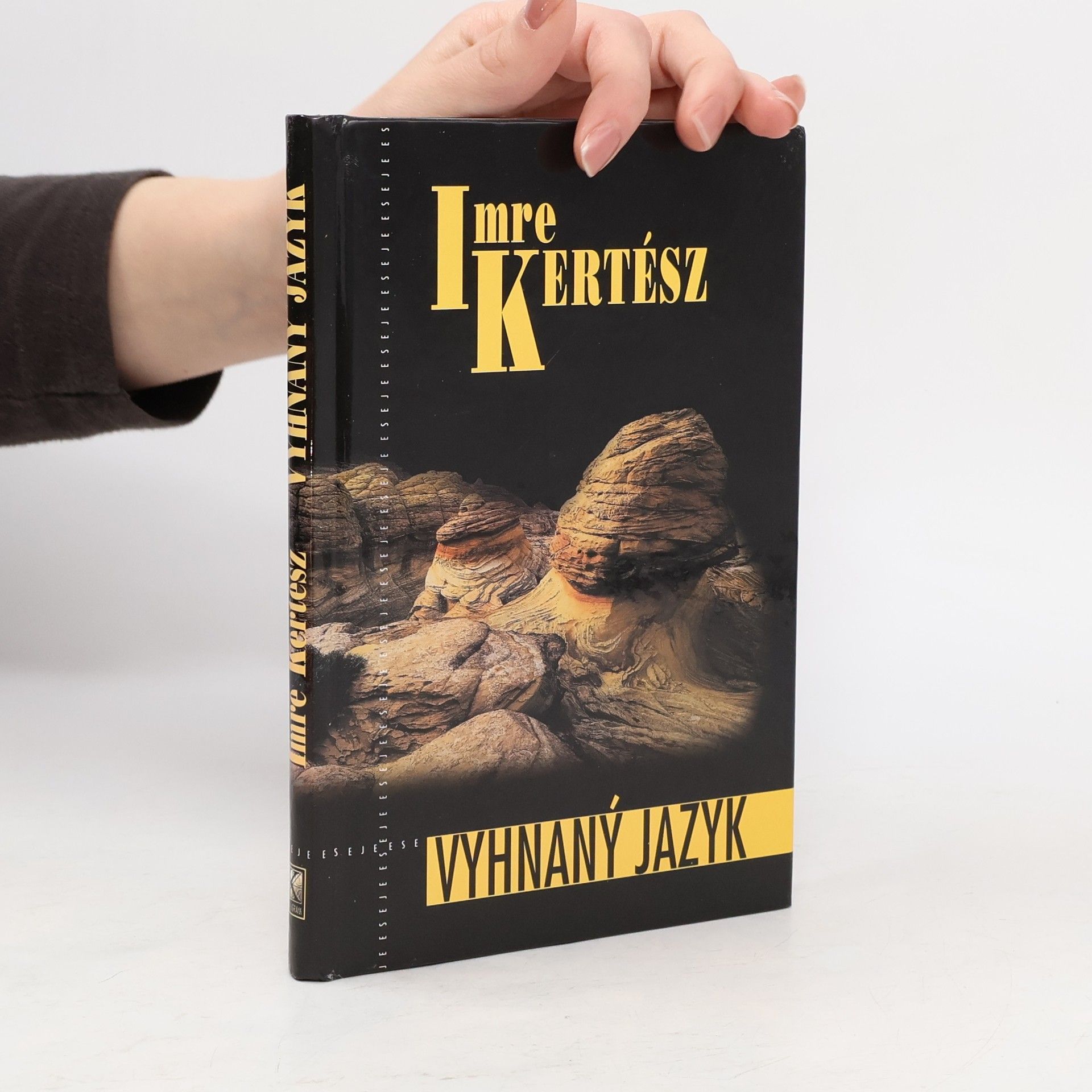Barcelona. 22 cm. 238 p. Encuadernación en tapa dura de editorial con sobrecubierta ilustrada. Kertész, Imre 1929-2016. Traducción de Judith Xantus Fzarvas ; prólogo de Jaime Vándor. Traducción de: Sorstalanság .. Este libro es de segunda mano y tiene o puede tener marcas y señales de su anterior propietario. ISBN: 84-226-6820-3
Imre Kertész Libros
La prosa de este autor, marcada por una historia personal en campos de concentración, profundiza en la frágil experiencia del individuo frente a la arbitrariedad bárbara de la historia. Su obra se centra en el mundo interior del yo y su lucha por mantener la identidad bajo coacción extrema. El estilo se caracteriza por una profunda introspección y un examen exhaustivo de pasados traumáticos. A través de su legado literario, el autor lanza una poderosa súplica por la comprensión y el compromiso crítico con la historia.

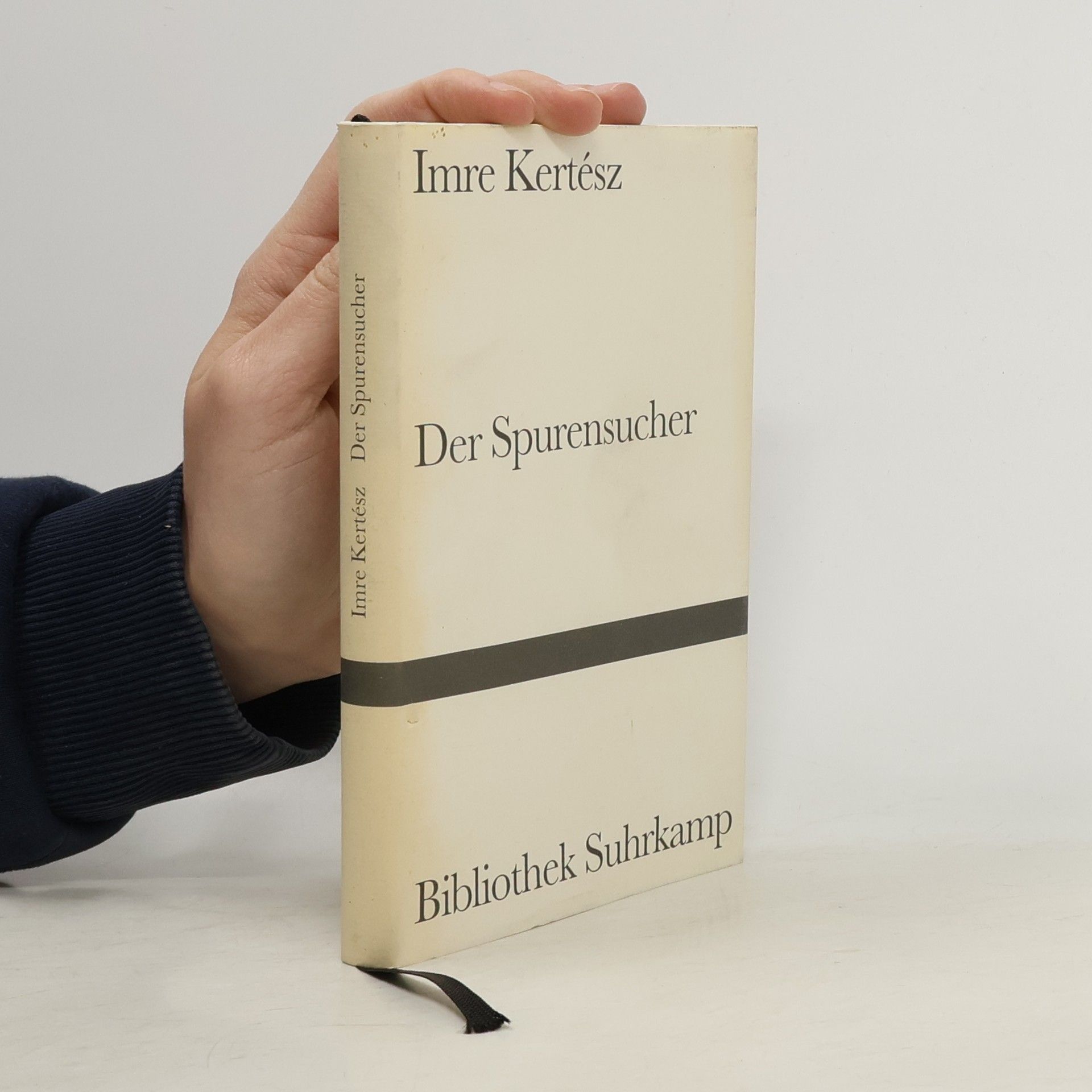
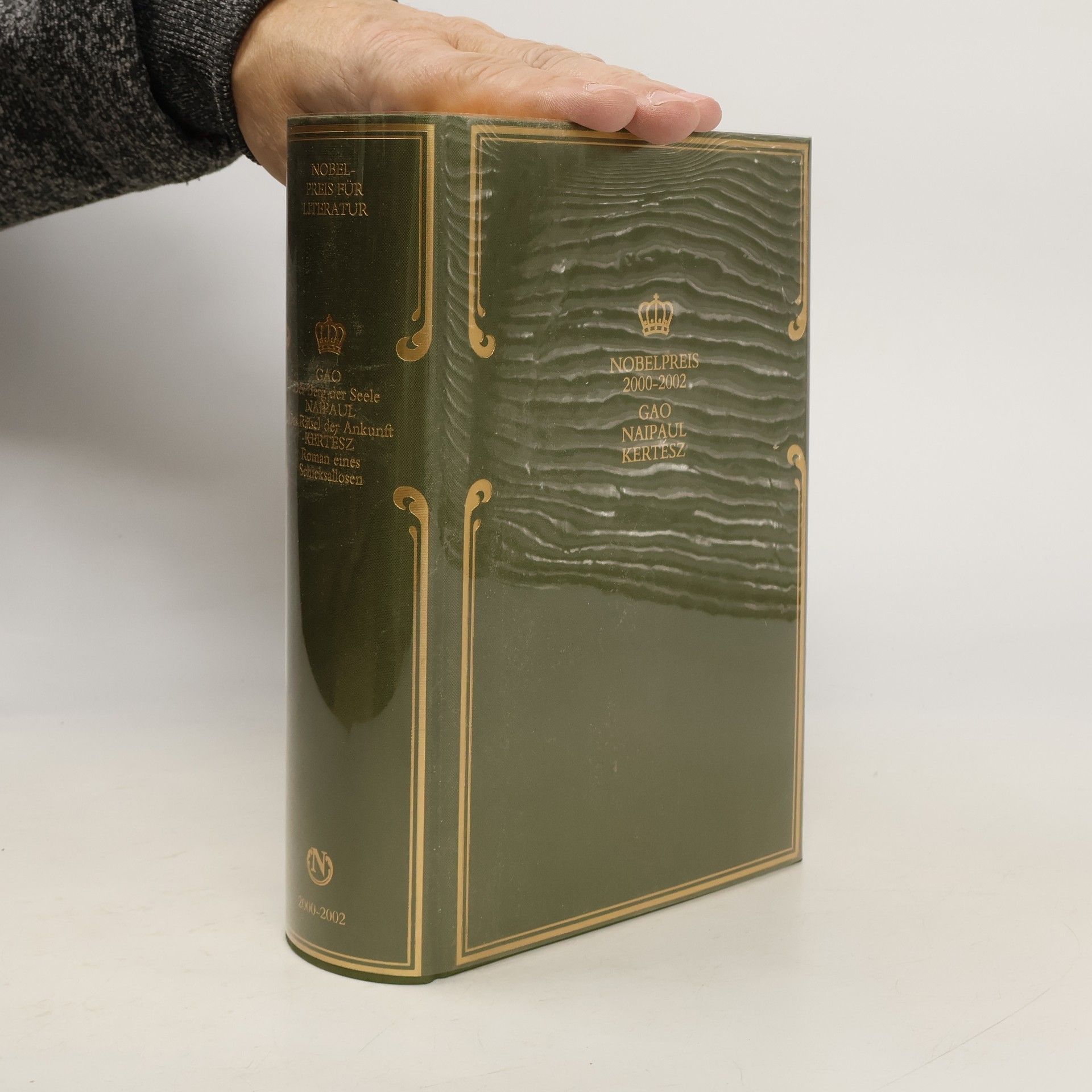
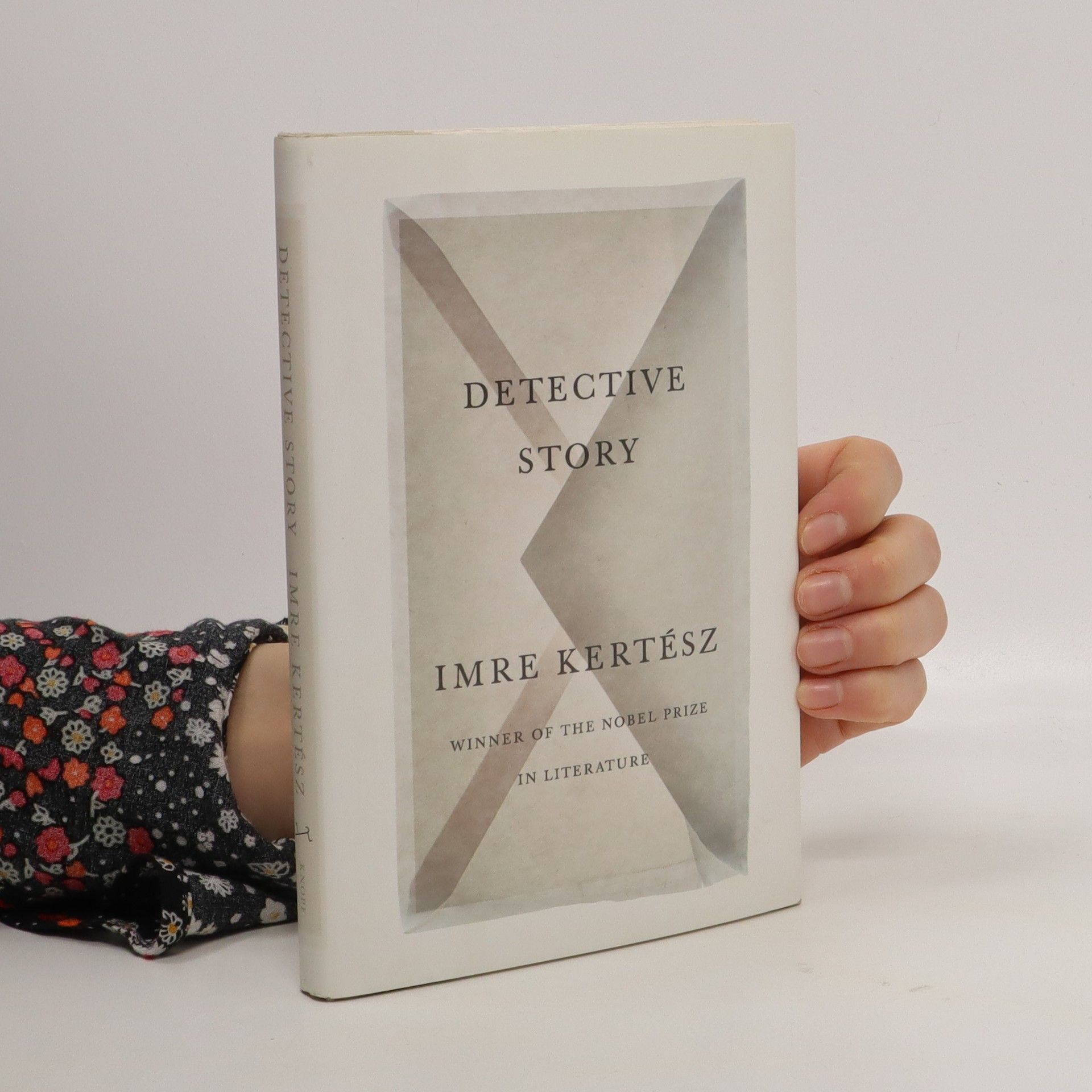
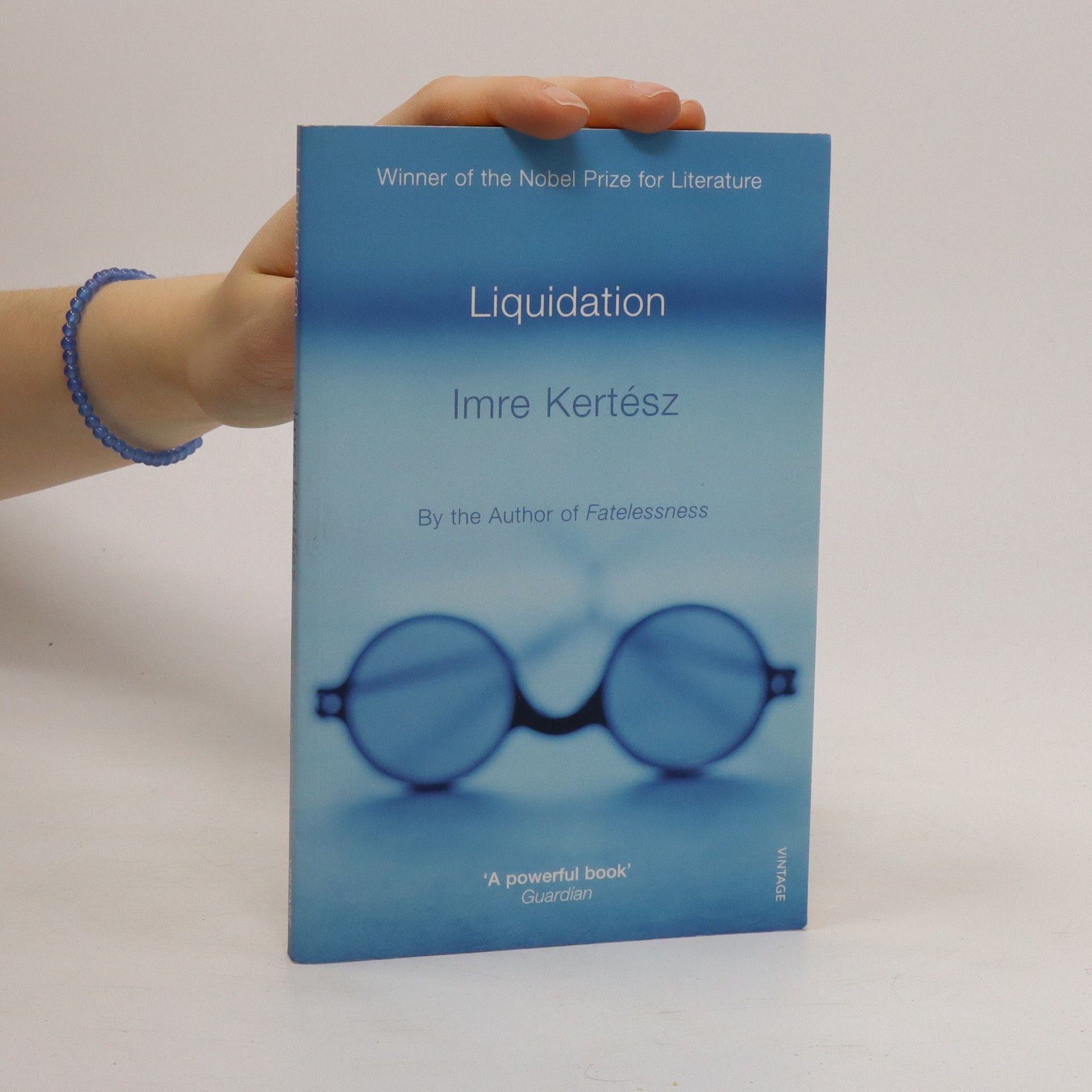


Kaddish For An Unborn Child
- 144 páginas
- 6 horas de lectura
Condenses a lifetime into a story told in a single night...exhilarating for [its] creative energy World Literature
Kingbitter, an editor at a publishing house on the verge of closure, believes himself to have been the closest friend of a celebrated writer and Auschwitz survivor, B, who recently committed suicide. Amongst the papers, Kingbitter finds a play entitled Liquidation that predicts the behaviour of B's ex-wife, his mistress and Kingbitter himself.
As readers, we are accustomed to reading stories of war and injustice from the victims’ point of view, sympathizing with their plight. In Detective Story, the tables have been turned, leaving us in the mind of a monster, as Nobel Laureate Imre Kertész plunges us into a story of the worst kind, told by a man living outside morality.Now in prison, Antonio Martens is a torturer for the secret police of a recently defunct dictatorship. He requests and is given writing materials in his cell, and what he has to recount is his involvement in the surveillance, torture, and assassination of Federigo and Enrique Salinas, a prominent father and son whose principled but passive opposition to the regime left them vulnerable to the secret police. Preying on young Enrique’s aimless life, the secret police began to position him as a subversive and then targeted his father. Once this plan was set into motion, any means were justified to reach the regime’s chosen end—the destruction of an entire liberal class.Inside Martens’s mind, we inhabit the rationalizing world of evil and see firsthand the inherent danger of inertia during times of crisis. A slim, explosive novel of justice railroaded by malevolence, Detective Story is a warning cry for our time.
Der Spurensucher
- 129 páginas
- 5 horas de lectura
Imre Kertész wurde am 9. November 1929 in Budapest geboren. Er stammt aus einer kleinbürgerlichen Familie. Wegen seiner jüdischen Abstammung wurde Kertész im Juli 1944 als Fünfzehnjähriger nach Auschwitz deportiert und im April 1945 aus dem KZ Buchenwald befreit. 1948 machte er Abitur und fand eine Anstellung als Journalist bei der Tageszeitung Világosság. Diese wurde alsbald zum Parteiorgan der Kommunisten erklärt und er entlassen. Von 1951 bis 1953 leistete er Militärdienst. 1960 begann er mit der Arbeit an seinem Roman Sorstalanság (dt. Mensch ohne Schicksal, 1990; Roman eines Schicksallosen, 1995). Nach jahrelangen erfolglosen Versuchen konnte das Buch 1975 in Ungarn veröffentlicht werden, erfuhr jedoch erst mit der zweiten Auflage 1985 literarische Beachtung. Seinen Lebensunterhalt verdiente Imre Kertész daher hauptsächlich durch seine Arbeit als Übersetzer. Er übertrug unter anderem Werke von Friedrich Nietzsche, Sigmund Freud, Hugo von Hofmannsthal, Elias Canetti, Ludwig Wittgenstein, Joseph Roth, Arthur Schnitzler und Tankred Dorst ins Ungarische. Als Sorstalanság 1995 in einer deutschen Neuübersetzung erschien, wurde es als literarisches Ereignis gefeiert und verhalf Imre Kertész zu seinem internationalen Durchbruch. Im Herbst 2002 erhielt er den Nobelpreis für Literatur. Seit 1953 lebt Kertész als freier Schriftsteller in Budapest.
Die exilierte Sprache
- 200 páginas
- 7 horas de lectura
Essays und Reden
Galeerentagebuch
- 317 páginas
- 12 horas de lectura
„Tagebuchroman“ nennt Imre Kertész seine Sammlung von Beobachtungen, Aphorismen und philosophischen Exkursionen aus dreißig Jahren. Im inneren Dialog mit Nietzsche, Freud, Camus, Adorno, mit Musil, Beckett, Kafka und anderen versucht er, Holocaust und Modernität, Totalitarismus und Freiheit zu Ende zu denken.
Navýsost osobní dílo laureáta Nobelovy ceny za literaturu odkazuje už svým názvem ke slavnému Rimbaudovu aforismu „Já je někdo jiný“. A právě v návaznosti na něj se Kertészův text opět potýká s autorovou dávnou Nemesis – paradoxní a de facto nerozklíčovatelnou problematikou identity. Rámec fragmentarizovaných zápisů deníkového ražení tvoří překlad Wittgensteina coby pracovní proces, ale také duševní stav. Děj se odehrává v mnoha centrech evropského kulturního dědictví: ve Vídni, Berlíně, Mnichově, Budapešti či Tel Avivu, jejichž ulicemi, přednáškovými sály i nádražními halami se zvolna prochází hluboce melancholický vypravěč, zajatý už navěky ve stavu znovunalezené „svobody“, jež mu ovšem nepřináší ani kýženou úlevu, ani pocit skutečné „proměny“.
Vyhnaný jazyk
- 170 páginas
- 6 horas de lectura
mre Kertész na vlastnej koži zažil čas, ktorý sa v dejinách označuje ako 20. storočie. Pre toto hrozné storočie straty hodnôt, keď sa všetko, čo bolo kedysi hodnotou, stalo ideológiou, je príznačné, že sa politika a kultúra dostali nielen do protikladu, ale aj do vzájomného nepriateľstva. Politika, ktorá sa odtrhla od kultúry a prostredníctvom moci nadobudla neobmedzenú (a všetkého schopnú) totalitnú podobu, je skazonosná. Nijaký stranícky ani štátny totalitarizmus sa nezaobíde bez diskriminácie, a totalitnou formou diskriminácie sú masové vraždy. Kertész ako umelec pracujúci s jazykom citlivo vníma (ne)možnosť vyjadriť slovami a jazykom mnohé z toho, čo bolo údelom miliónov ľudí. Zisťuje, že jednou z najzávažnejších, a možno dostatočne ani nedocenených udalostí 20. storočia je, že sa nakazil ideológiami, takže sa stal nesmierne nebezpečným. A predsa z Kertészových úvah, zo slov, podľa neho takých bezmocných, vyžaruje múdry vnútorný jas, za ktorý bolo treba zaplatiť neslýchanú cenu: teraz však disponuje nedefinovateľnou silou a vyrovnanosťou, potrebnou na ceste človeka dejinami.


